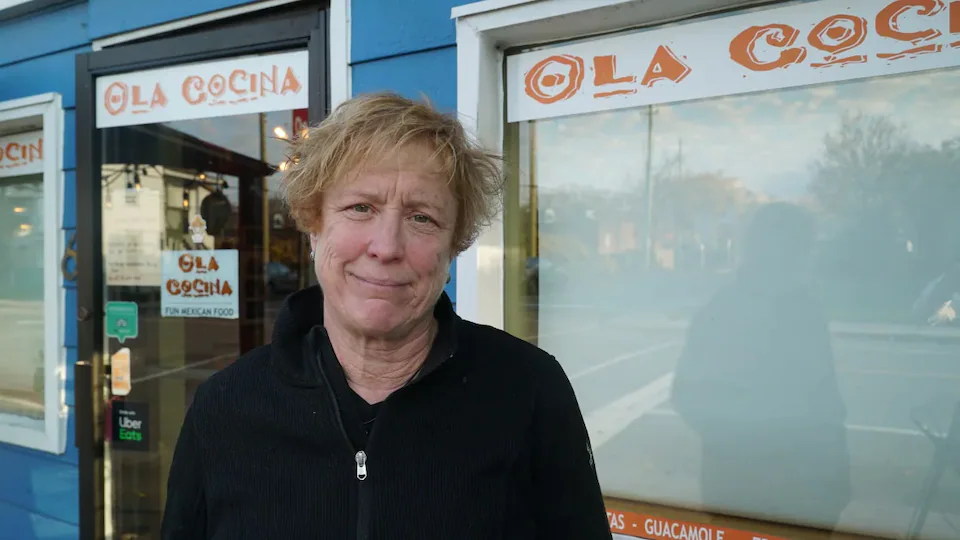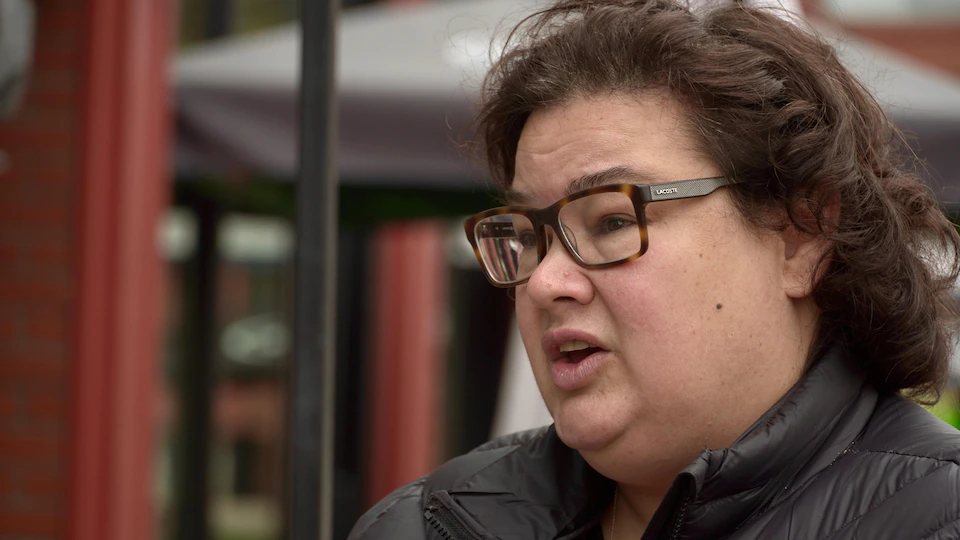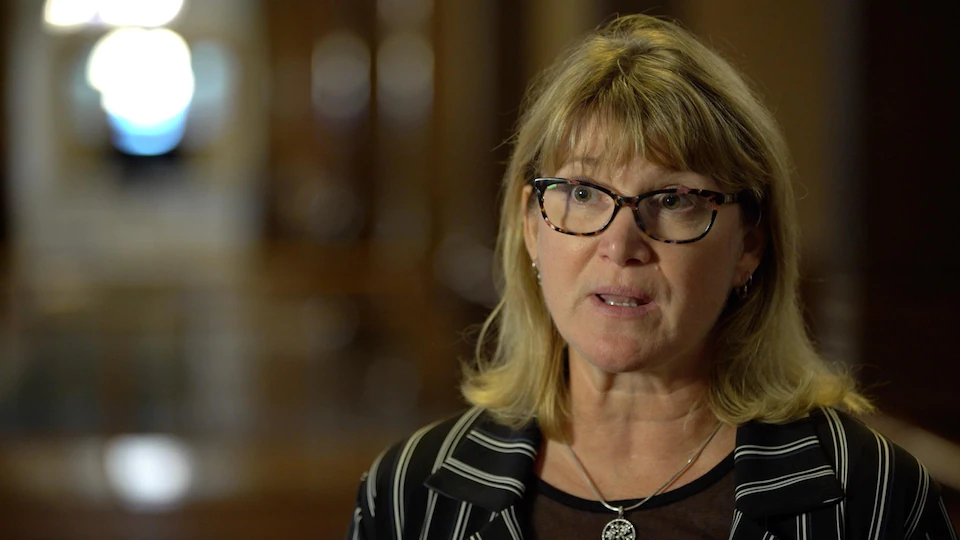I have at least $100,000 in debt
evaluates the businesswoman who is at the head of the Ola Cocina Taquerria restaurant, located on Barrette Street in the Vanier sector. At this point, I don’t know how I’m going to pay it all back.
” I have been in the restaurant business for 40 years. The end is coming, I feel it’s getting closer. »
Since March 2020, customers have not been there, says Donna Chevrier, discouraged. Before COVID-19, his restaurant could generate tens of thousands of dollars a week. Today, she considers herself lucky to be able to pay living expenses.
I haven’t had a salary for two years
she complains. I borrowed money from my mother to live. I work just to pay the rent — up 37% — and the employees.
Like many other small businesses in difficulty due to the pandemic, the restaurateur was also entitled to financial assistance of $ 40,000 from the government of Ontario. However, this is a loan that must be repaid by December 31, 2022.
Asked about this financial assistance, Donna Chevrier lets out a huge expletive.
I can’t even afford a salary of $40,000, so imagine…
she mocks bitterly. The subsidies helped me, definitely, but there you have to start paying back, while the economy hasn’t even returned.
In the southern part of the riding, on Montreal Road, another business is struggling to regain its pre-pandemic clientele.
David Seba, the co-owner of the Something Patisserie, also maintains that business is running at a slower pace. He and his business partner had to reinvent their way of doing things to keep their heads above water.
Despite their efforts, they have not found their usual traffic, he explains. There are customers who are still afraid of the pandemic and no longer go out. If it’s too full in our store, some people quit and don’t buy.
While customers aren’t buying, the bills are piling up. He and his partner also resorted to government grants during the pandemic. I’m grateful I got it, he says, but it’s money we now have to pay back.
A perfect storm
In Ottawa, there was a perfect storm: the pandemic, the closure due to the six-week occupation and the severe thunderstorms
notes Nathalie Carrier, General Manager of the Vanier Business Improvement Zone (BIA).
A company that sailed through that two-year storm has racked up a lot of debt
by taking out emergency loans or remortgaging a house, for example, to compensate for lost income.
” These companies have been kicked one after the other. At some point it’s not easy. »
To repay their debts, companies must return to profits, but the pandemic has created another perverse effect, explains Ms. Carrier. The biggest challenge they face right now is attracting and retaining the workforce.
It’s particularly glaring in the restaurant industry, where hundreds of workers who lost their jobs during the pandemic did not return when restaurants resumed operations.
It’s crazy
agree David Seba and Donna Chevrier: recruiting new employees is a big headache at the moment.
When they are found, they want to be paid more than minimum wage, even if they have no experience. Those with a little bit of experience ask for far too high salaries
explains Seba. I would have liked to pay my employees more, and offer them all kinds of benefits, but we are only a small company.
” Lately, it’s almost impossible to hire someone for minimum wage. »
The cost of living, which increased between 4 and 7% in 2021, is partly responsible for this situation, believes the director general of the ZAC by Vanier.
People don’t want to take a job that pays $15 an hour because they can’t live on a salary like that. At the same time, small and medium-sized businesses need people who are willing to work on this salary [pour rentabiliser leur commerce].

What are the parties proposing?
Ontario Liberal Party candidate for Ottawa—Vanier, Lucille Collard, believes economic recovery in her riding will depend on helping businesses and increasing consumer purchasing power.
For small businesses, his party is proposing to eliminate incorporation fees, remove corporate taxes from businesses affected by the pandemic for a two-year period and provide more loans to merchants.
the OLP is also betting that by putting more money in the pockets of Ontarians, they will be more likely to spend in stores.
This is why the party is proposing to reduce the cost of public transit to $1 until January 2024, to reduce the gas tax, to raise the minimum wage to $16 an hour and to restore rent control.
” [La solution passe par] a combination of measures, because there is no single miracle solution. »
The Progressive Conservative Party is proposing, with a few differences, similar measures to restore some purchasing power to consumers: raising the minimum wage to $15.50 an hour, reducing the gas tax by 5.7 cents per litre, end of annual fee for license sticker renewal, etc.
But when it comes to reviving small businesses, the party is stingy with comments. The candidate in Ottawa-Vanier, Patrick Mayangi, did not have permission from his party to discuss it with Radio-Canada.
The New Democratic Party promises to create a COVID emergency fund for businesses, provide greater access to commercial insurance, review the Commercial Rental Act, in addition to proposing to increase the minimum wage up to to $20 an hour in 2026 and extend the Ontario vacation tax credit for two years. Candidate Lyra Evans, however, did not respond to our requests for information.
The Green Party of Ontario is proposing measures to support small businesses, but the candidate in the riding of Ottawa—Vanier, Christian Proulx, was unable to indicate which ones could directly help businesses in his riding affected by the pandemic .
However, he recognizes the need to support them by developing a long-term preventive plan. What he promises to fight for, once elected. We could have other interruptions in the future, so we have to look at the long term.
Maybe the end…
Back on Barrette Street, Donna Chevrier is about to crack under the pressure.
In August, I called the help line. I’ve never done this in my life, but now I couldn’t take it anymore
she confided. I’m stressed because the Canada Revenue Agency is calling. I do not sleep.
The businesswoman is constantly brooding over her closing plan. She is waiting for the end of the summer to make a decision.
However, she has little hope of keeping the doors of her business open.
We would like to give thanks to the writer of this write-up for this awesome web content
Ottawa—Vanier: Despite the recovery, many challenges await small businesses
You can view our social media profiles here , as well as other related pages herehttps://nimblespirit.com/related-pages/





